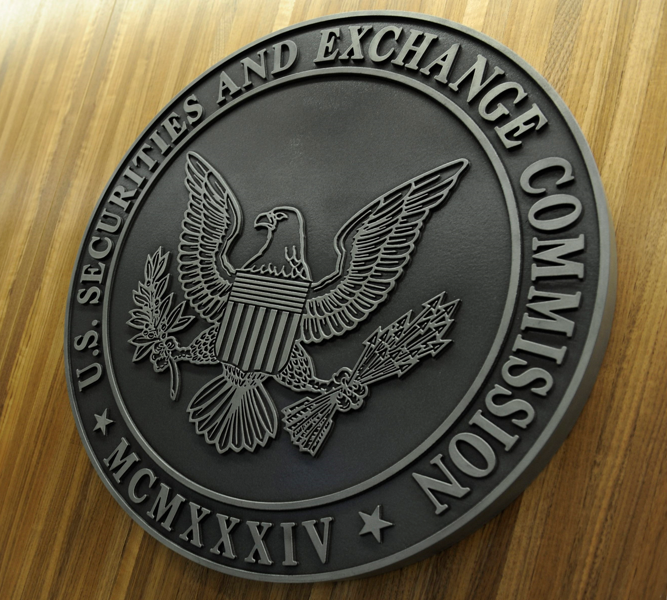
|
OVERVIEW |
|
Unicorn Capital Partners, LLC is the general partner of both Unicorn Macro Fund, LP and Unicorn Pairs Fund, LP and operating under the SEC Rule 506 (c) of Regulation D. Because Unicorn Capital Partners, LLC manages less than 6 funds and has less than $100 million Regulatory Asset Under Management (RAUM), it is either registered with New York State or SEC as an investment advisor.
|
 |
DOCUMENTS | |
| As part of our effort to provide full transparency, all legal documentation is available for the public to access on our website. All the documents need to be carefully reviewed by either the interested party or the interested party’s assigned financial planner or attorney. Please contact the respective fund manager to request a hard copy of the documents. | ||
|
It highlights the key terms in Limited Partnership Agreement and Private Placement Memorandum, such as minimum subscription amount, lock-up period, fee structure and risk factors. It also provides.
|
||
|
A private placement involves selling securities without registering with the SEC, and the memorandum is a legal document explaining the offering of securities for the private placement. The memorandum serves to provide investors with information on the offering and to protect sellers from the liability associated with selling unregistered securities.
Given the exemption from registration, the memorandum also serves to raise the limited partners' awareness by stating the objectives, risk and terms of investment for the private offering.
|
||
|
It is the contractual agreement between the general partner and limited partners and spells out the authority of the general partner and the rights of all limited partners. Limited partners neither have voting rights nor make any decisions regarding the operations.
Interested party should carefully review the agreement before making any investment decisions.
|
||
|
It is used to verify the interested party's status as an accredited investor and help the general partner assess the interested party's suitability for investment. Upon the completion and submission of this agreement, along with other documentations required in this agreement, the general partner will notify the interested party in three business days whether the subscription request is granted.
By signing the agreement, the interested party accepts all terms in Limited Partnership Agreement and Private Placement Memorandum.
|
||
 |
REGULATORY TERMS | |
| As part of our effort to provide full transparency, we feel obligated to help our Investors to understand the legal jargon regarding SEC Rule 506(c). We define the terms in the context of Unicorn Funds so as to help the public have a better understanding in our legal structure and compliance. | ||
|
All Unicorn funds operate under Security and Exchange Commission ("SEC") Rule 506(c). As such, all funds must be from accredited investors as defined by the SEC and the Fund "has taken reasonable steps to verify that its investors are accredited investors..." The Fund issues unregistered "restricted securities" that will never have a market-place nor third-party resellers and as such will have "no holding period".
Rule 506(c) as defined by the SEC: Rule 506 of Regulation D is considered a "safe harbor" for the private offering exemption of Section 4(a)(2) of the Securities Act. Companies relying on the Rule 506 exemption can raise an unlimited amount of money. Under Rule 506(c), a company can broadly solicit and generally advertise the offering, but still be deemed to be undertaking a private offering within Section 4(a)(2) if:
Purchasers of securities offered pursuant to Rule 506 receive "restricted securities", meaning that the securities cannot be sold for at least a year without registering them. Companies relying on the Rule 506 exemption do not have to register their offering of securities with the SEC, but they must file what is known as a Form D electronically with the SEC after they first sell their securities. Form D is a brief notice that includes the names and addresses of the company’s promoters, executive officers and directors, and some details about the offering, but contains little other information about the company. If you are thinking about investing in a Regulation D offering, you should obtain a copy of the company’s Form D available from the EDGAR database. |
||
|
All Unicorn funds operate under Security and Exchange Commission (SEC”) Rule 506(c). As such, all capital must be from accredited investors as defined by the SEC and the Fund “has taken reasonable steps to verify that its investors are accredited investors, which could include reviewing documentation, such as W-2s, tax returns, bank and brokerage statements, credit reports and the like.” To fulfil this verification process the Fund has provided an “investor questionnaire”. The investor must fill out the questionnaire and return it to the Fund or provide a sworn affidavit that the investor has filled out the questionnaire and a third-party has verified the answers.
An accredited investor as defined by the SEC: An accredited investor, in the context of a natural person, includes anyone who:
On the income test, the person must satisfy the thresholds for the three years consistently either alone or with a spouse, and cannot, for example, satisfy one year based on individual income and the next two years based on joint income with a spouse. The only exception is if a person is married within this period, in which case the person may satisfy the threshold on the basis of joint income for the years during which the person was married and on the basis of individual income for the other years. In addition, entities such as banks, partnerships, corporations, nonprofits and trusts may be accredited investors. Of the entities that would be considered accredited investors and depending on your circumstances, the following may be relevant to you:
|
||
|
The limited partnership Interests described in this Memorandum are not registered under the Securities Act of 1933, as amended (the “Securities Act”), or state securities laws in reliance upon the exemptions for transactions not involving a public offering. As a purchaser of such Interests in a private placement not registered under the Securities Act, each investor will be required to make certain representations to the Fund, including that it is acquiring such interests for investment and not with a view to resale or distribution, and that it is an accredited investor as defined in Regulation D of the Securities Act. It is extremely unlikely that the limited partnership Interests will ever be registered under the Securities Act.
During the course of the transaction and prior to sale, each purchaser of the Interests and its purchaser representatives, if any, are invited to ask questions of the General Partner and other representatives of the General Partner concerning the terms and conditions of the offering. Each prospective purchaser may request additional information necessary to verify the accuracy of the information furnished in this memorandum, and the General Partner will endeavor to provide such information if it can be acquired without unreasonable effort or expense. |
||
|
All Unicorn funds' Private Placement offerings use general solicitation and general advertising because of the Jumpstart Our Business Startups Act (“JOBS Act”) of 2012. The JOBS Act was enacted for the stated purpose of “increas[ing] American job creation and economic growth by improving access to the public capital markets for emerging growth companies.” The JOBS Act amended various sections of the Securities Act of 1933 and required the SEC to amend its rules. Section 201(a)(1) of the JOBS Act directed the SEC to amend Rule 506 of Reg D to include Rule 506(c). The new 506(c) rule, lifts the prohibition on general solicitation or general advertising contained in Rule 502(c), provided that all purchasers of the securities are verified accredited investors.
|
||
|
All Unicorn funds are Private Placements, each with less than 100 investors and as such is exempt from registering as an investment company because of Section 3(c)(1) of the Investment Company Act of 1940. Under the Investment Act, all “investment companies” are required to register with the Securities Exchange Commission (“SEC”) unless the “investment company” qualifies for an exemption from the registration provisions. Section 3(c)(1) of the Investment Act provides an exemption for, “Any issuer whose outstanding securities (other than short-term paper) are beneficially owned by not more than one hundred persons and which is not making and does not presently propose to make a public offering of its securities.”
|
||
|
All Unicorn funds are Private Placements and as such are exempt from registration with the Securities Exchange Commission (“SEC”) because of Section 4(a)(2) of the Securities Act. Under the Securities Act of 1933, any offer to sell securities must either be registered with the SEC or qualify for an exemption. For Private Placements, Section 4(a)(2) provides an exemption for “transactions by an issuer not involving any public offering”.
|
||
 |
REGULATORS | |
| As each Unicorn Fund trades in different financial markets with different financial instruments, there are different regulatory bodies that each Unicorn Fund needs to comply with. In the stock market, the regulatory body is Securities Exchange Commission (“SEC”). In the derivative market, besides SEC, the fund also needs to comply with Commodity Futures Trading Commission (“CFTC”). | ||
|
All Unicorn funds are exempt from registering with the Securities Exchange Commission (“SEC”) under Regulation D Rule 506(c). SEC Rule 506 of Regulation D is considered a “safe harbor” for the private offering exemption of Section 4(a)(2) of the Securities Act of 1933. With less than 100 verified accredited investors in the Fund, Rule 506(c) is considered a “safe harbor” for the private offering exemption of Section 3(c)(1) of the Investment Company Act of 1940.
The Fund’s reliance on the Reg D (17 CFR § 230.501 et seq.) exemption requires filing “Form D” electronically with the SEC. Form D is a brief notice that includes the names and addresses of the Fund’s promoters, executive officers and directors, and some details about the offering, but contains little other information about the Fund. |
||
|
Commodity Futures Trading Commission (“CFTC”) is an independent agency of the US government created in 1974 regulating futures and option markets. CFTC's mission is to protect the market users and their funds, consumers, and the public from fraud, manipulation, and abusive practices related to derivatives and other products that are subject to the Commodity Exchange Act.
|
||